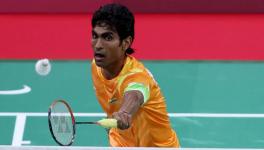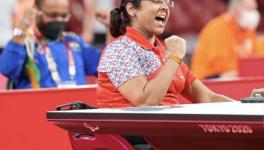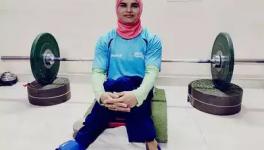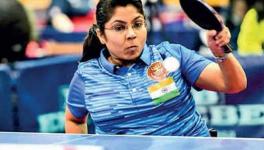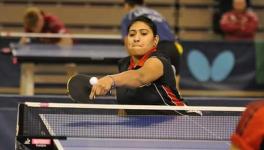Devendra Jhajharia, India's Double Paralympic Gold Medallist, Almost Quit Training in 2013
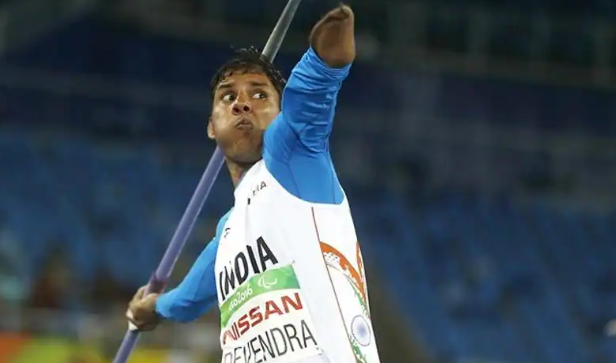
Devendra Jhajharia won gold in the 2004 (Athens) and 2016 (Rio) editions of the Paralympics (Pic: PCI).
Devendra Jhajharia, two time gold medallist at the Paralympics, went through a period of uncertainty when his event was removed from the Games programme at the Beijing 2008 and London 2012 editions. Jhajharia, 40, who won his first gold in the F46 javelin throw event at the 2004 Athens Paralympics, almost quit the sport. However, he persevered and won his second gold in 2016, after a gap of 12 years.
"When my event was not included in the 2008 Paralympics, I said OK it will be in 2012. But when it was not there again in 2012, I thought I would quit the sport,” said Jhajharia, who will defend his crown at the Tokyo Games to be staged from August 24 to September 5.
Also Read | Tokyo Paralympics: Spectators Barred as Host City Reels Under Covid-19
"This was 2013,” he added. “But my wife said I should not do it and can play till 2016. So, I changed my plan and in 2013, I got to know that my event will be there in the Rio Paralympics. Then I started training at SAI Centre in Gandhinagar and won my second gold in 2016 Rio."
Jhajharia’s wife, Manju, is a former national level kabaddi player.
Dropping or introduction of an event in a particular edition of Paralympics is solely the discretion of the International Paralympic Committee. Those events (or classifications) which attract less participation in the previous Paralympics or other top competitions are prone to be dropped.
Para-athletes are given a classification depending on the type and extent of their disability. The classification system allows athletes to compete against others with a similar level of ability.
Also Read | Vinesh Phogat and Sonam Malik’s Nonsensical Suspensions a Way for WFI to Regain Control
F46 classification is meant for athletes who have any form of upper limb deficiency, impaired muscle power or impaired passive range of movement.
Jhajharia, who is gunning for this third gold at the Tokyo Paralympics, said he had faced taunts from people when he started his journey in sport.
"When I was nine years old, I lost my hand (due to electrocution). It was a challenge to go outside my house. When I pulled the javelin at my school, there were taunts that I had to deal with,” he said.
"People asked how I will throw a javelin, they told me there is no place for me in sports, it's better to study and try and get a good job.
"Then I decided that I will not be weak. In life I have learnt that when there is a challenge in front of us then you are close to achieving success. So, I took it as a challenge. I am dedicated towards my sport. I am very disciplined, I keep a javelin in the room where I sleep."
(With additions from PTI)
Get the latest reports & analysis with people's perspective on Protests, movements & deep analytical videos, discussions of the current affairs in your Telegram app. Subscribe to NewsClick's Telegram channel & get Real-Time updates on stories, as they get published on our website.









